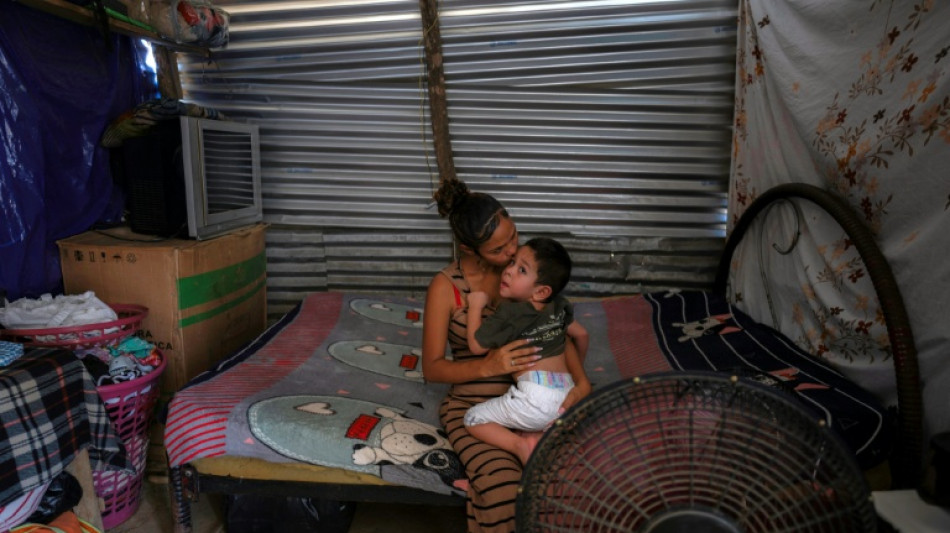
-
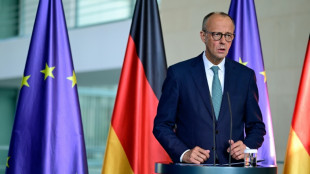 Germany suspends arms exports to Israel for use in Gaza
Germany suspends arms exports to Israel for use in Gaza
-
Stocks waver, gold futures hit record on US tariff updates

-
 Guessand says he jumped at chance to join Aston Villa after sealing move
Guessand says he jumped at chance to join Aston Villa after sealing move
-
Israel to 'take control' of Gaza City, sparking wave of criticism
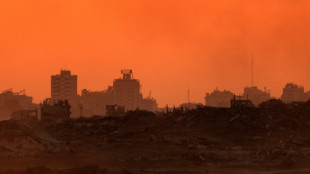
-
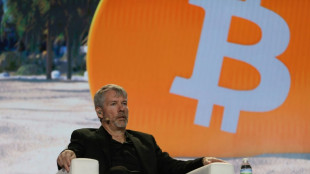 Accumulating bitcoin a risky digital rush by companies?
Accumulating bitcoin a risky digital rush by companies?
-
Liverpool's Slot hints at fresh Isak bid despite 'attacking power'
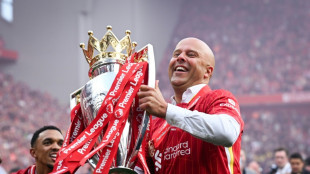
-
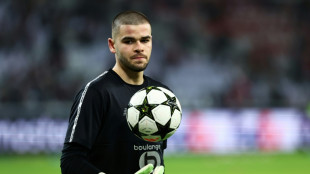 PSG to sign Lille goalkeeper Lucas Chevalier: source
PSG to sign Lille goalkeeper Lucas Chevalier: source
-
Oil industry presence surges at UN plastic talks: NGOs
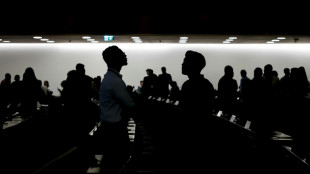
-
 Kipyegon says a woman will run a sub-four minute mile
Kipyegon says a woman will run a sub-four minute mile
-
Tokyo soars on trade deal relief as most Asian markets limp into weekend

-
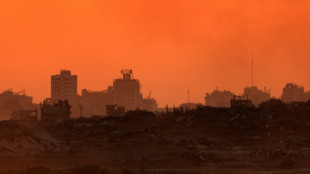 Israel to 'take control' of Gaza City after approving new war plan
Israel to 'take control' of Gaza City after approving new war plan
-
Australian A-League side Western United stripped of licence

-
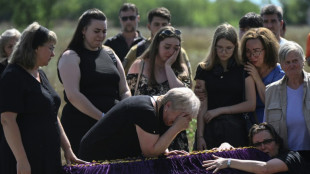 'Back home': family who fled front buried after Kyiv strike
'Back home': family who fled front buried after Kyiv strike
-
Indonesia cracks down on pirate protest flag

-
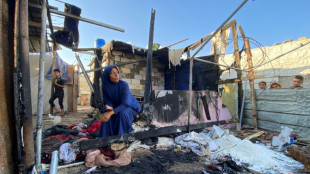 Israeli army will 'take control' of Gaza City: PM's office
Israeli army will 'take control' of Gaza City: PM's office
-
Australian mushroom murderer accused of poisoning husband

-
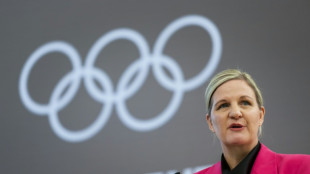 Coventry's mettle tested by Russian Olympic debate, say former IOC figures
Coventry's mettle tested by Russian Olympic debate, say former IOC figures
-
Library user borrows rare Chinese artwork, returns fakes: US officials

-
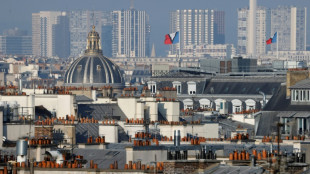 Parisians hot under the collar over A/C in apartments
Parisians hot under the collar over A/C in apartments
-
Crypto group reportedly says it planned sex toy tosses at WNBA games

-
 American Shelton tops Khachanov to win first ATP Masters title in Toronto
American Shelton tops Khachanov to win first ATP Masters title in Toronto
-
Tokyo soars on trade deal relief as Asian markets limp into weekend

-
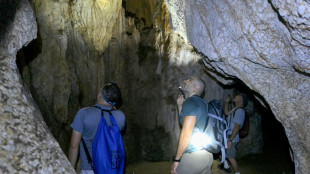 New species teem in Cambodia's threatened karst
New species teem in Cambodia's threatened karst
-
Australian mushroom murderer accused of poisoning husband: police
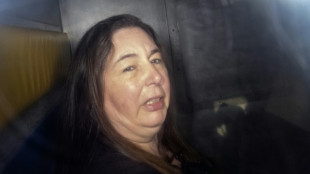
-
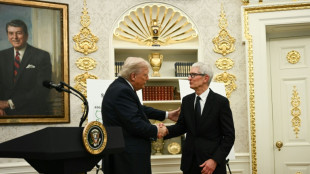 Solid gold, royal missives and Nobel noms: how to win Trump over
Solid gold, royal missives and Nobel noms: how to win Trump over
-
Canadian teen Mboko outlasts Osaka to win WTA Montreal crown
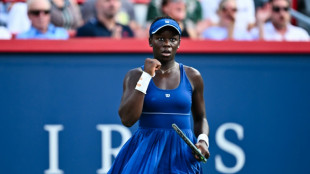
-
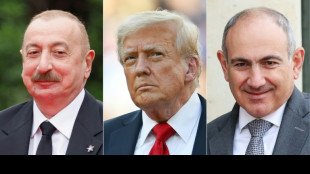 Trump to host Armenia, Azerbaijan for historic 'Peace Signing'
Trump to host Armenia, Azerbaijan for historic 'Peace Signing'
-
Israeli airline's Paris offices daubed with red paint, slogans
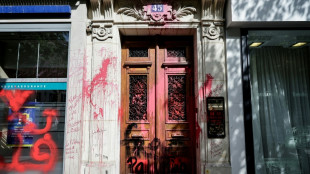
-
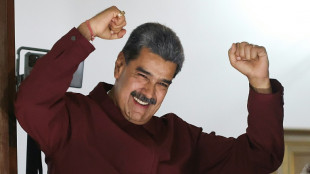 US raises bounty on Venezuela's Maduro to $50 mn
US raises bounty on Venezuela's Maduro to $50 mn
-
Lebanon cabinet meets again on Hezbollah disarmament

-
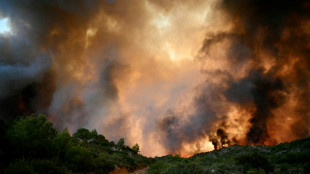 France's huge wildfire will burn for days: authorities
France's huge wildfire will burn for days: authorities
-
Bolivia right-wing presidential hopeful vows 'radical change'
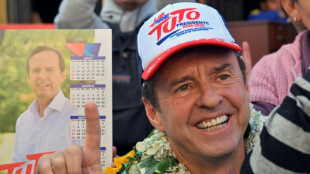
-
 Trump says would meet Putin without Zelensky sit-down
Trump says would meet Putin without Zelensky sit-down
-
Trump offers data to justify firing of labor stats chief
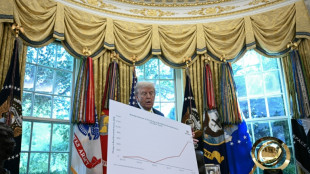
-
 Bhatia leads by one at PGA St. Jude, Scheffler five adrift
Bhatia leads by one at PGA St. Jude, Scheffler five adrift
-
Disney settles Trump-supporting 'Star Wars' actor lawsuit

-
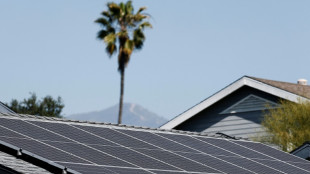 Trump moves to kill $7 billion in solar panel grants
Trump moves to kill $7 billion in solar panel grants
-
Venus Williams falls at first hurdle in Cincinnati

-
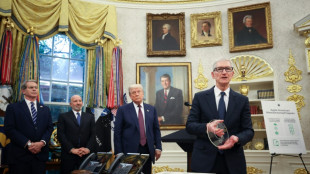 Mixed day for global stocks as latest Trump levies take effect
Mixed day for global stocks as latest Trump levies take effect
-
SpaceX agrees to take Italian experiments to Mars
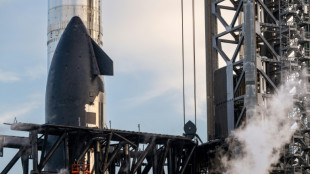
-
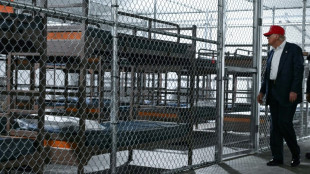 US judge orders temporary halt to new 'Alligator Alcatraz' construction
US judge orders temporary halt to new 'Alligator Alcatraz' construction
-
US uses war rhetoric, Superman to recruit for migrant crackdown
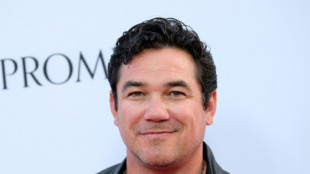
-
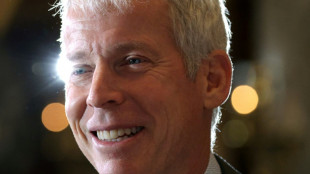 US to rewrite its past national climate reports
US to rewrite its past national climate reports
-
U can't pay this: MC Hammer sued over delinquent car loan

-
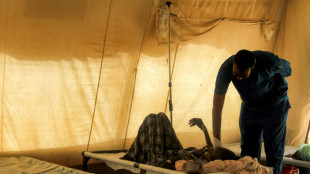 WHO says nearly 100,000 struck with cholera in Sudan
WHO says nearly 100,000 struck with cholera in Sudan
-
Huge wildfire in southern France now under control
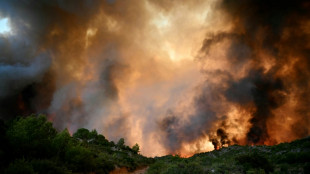
-
 Kane scores as Bayern thump Spurs in pre-season friendly
Kane scores as Bayern thump Spurs in pre-season friendly
-
France strikes down return of banned bee-killing pesticide
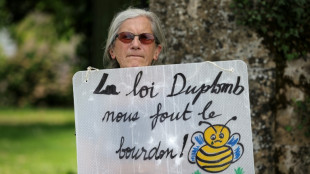
-
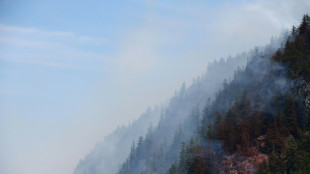 Canada sends troops to eastern province as fire damage grows
Canada sends troops to eastern province as fire damage grows
-
OpenAI releases ChatGPT-5 as AI race accelerates

| RBGPF | -5.79% | 71.84 | $ | |
| CMSC | 0.04% | 22.96 | $ | |
| SCU | 0% | 12.72 | $ | |
| NGG | -0.31% | 72.08 | $ | |
| RYCEF | -0.42% | 14.44 | $ | |
| BTI | 0.51% | 56.69 | $ | |
| SCS | 0.06% | 16 | $ | |
| RIO | 1.12% | 60.77 | $ | |
| BCC | 0.32% | 83.19 | $ | |
| GSK | 2.21% | 37.58 | $ | |
| BCE | 2.23% | 23.78 | $ | |
| RELX | 1.03% | 49.32 | $ | |
| VOD | -0.36% | 11.26 | $ | |
| CMSD | -0.09% | 23.52 | $ | |
| JRI | 0.52% | 13.41 | $ | |
| AZN | 1.3% | 74.57 | $ | |
| BP | 0.91% | 34.19 | $ |

Colombia's desert north feels the pain of Trump's cuts
For residents of Colombia's largest migrant camp, an already tough life is getting tougher thanks to Donald Trump's aid cuts.
Eight months pregnant and 20 years old, Astrid lives on an abandoned dust-blown airstrip in Colombia's Guajira desert.
Home is a lean-to shack, cobbled together from tin sheets and lumber.
It is not much, but it protects her and her five-year-old son -- who is paralyzed with encephalopathy -- from the blistering equatorial sun.
"What do I lack? Everything," the Venezuelan single mother tells AFP. "Nothing here is mine."
Like many of La Pista's 10,000-14,000 residents, Astrid fled nearby Venezuela, where poverty, hardship and organized crime are endemic.
Without running water, a bathroom, or even money to attend prenatal checkups, Astrid dreams of working and giving her children "a home."
But in La Pista malnutrition is common and many depend on aid handouts to survive.
Since Trump returned as US president in January, cuts to aid arm USAID have been keenly felt in this ad-hoc settlement, where children skip barefoot past dogs and cows rummaging in the garbage for food.
Trump and his cost-cutting sidekick Elon Musk have argued that the US federal budget is bloated, that spending is unsustainable and that Americans, not foreigners, should benefit from any tax-payer largesse.
USAID was effectively shuttered and its annual budget of close to $43 billion -- providing more than 40 percent of the world's humanitarian aid -- was decimated.
Local mayor Miguel Aragon said the US cuts felt like "a cold bucket of water."
Of the 28 non-governmental groups that existed in the area last year, only three remain today, he said.
"Today we feel alone," says the 37-year-old politician, who fears disaster is on the way.
- 'Rice with cheese' -
Inside a local medical center, several women with babies wait to be attended.
Luz Marina, a 40-year-old Colombian, is there with her five-year-old son who is underweight. She has experienced US politics first-hand.
Earlier this year, she was chosen to receive aid, only to be told it was cancelled due to decisions in Washington.
"I didn't get to receive anything," she says through tears. "It's so sad, it was something I truly needed."
With the help of nutritional supplements, Luz Marina's son had managed to gain some weight.
But that progress is now at risk due to a lack of food.
"It's not the same to eat rice with chicken as it is to eat rice with cheese," she told AFP.
Humanitarian groups have tried to alleviate some of the hardships, and the Colombian state provides potable water once a week to households.
But even rich Western aid groups are also feeling the pain of US spending cuts.
At a local school, until recently kids played instruments, sang and took workshops.
But the Save the Children-run project closed after the cuts reduced its Colombia budget by 40 percent.
Country director Maria Mercedes Lievano fears that the closure of such projects will create a "greater risk of people entering criminal groups."
"Having to turn our backs on the people we were supporting is very difficult," Lievano says, her voice choking. "It hurts a lot.
K.Hassan--SF-PST
